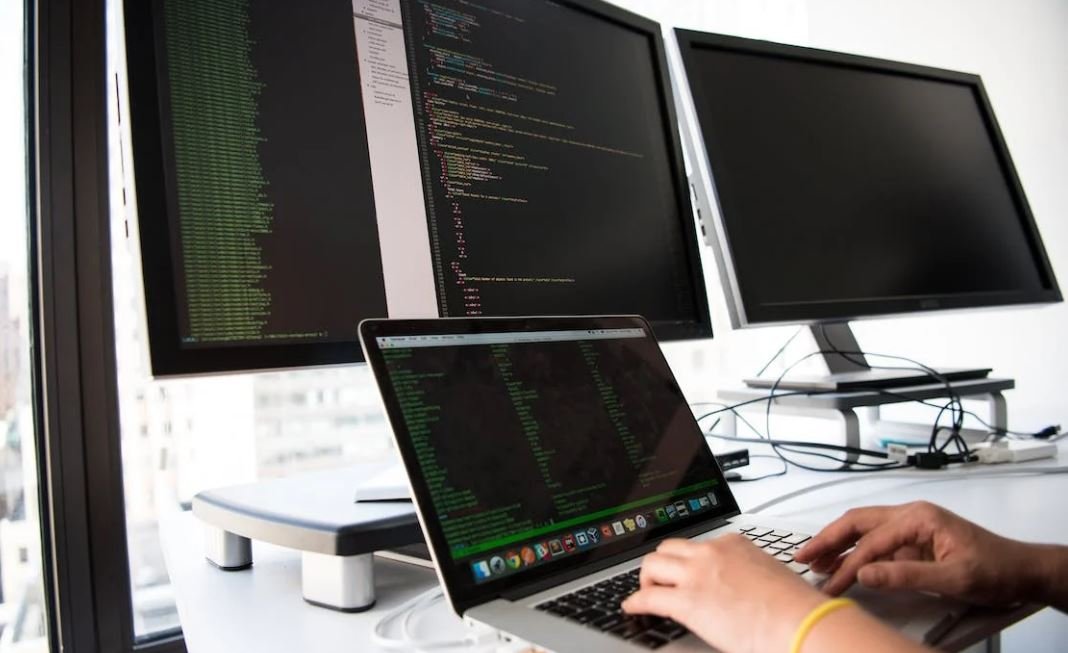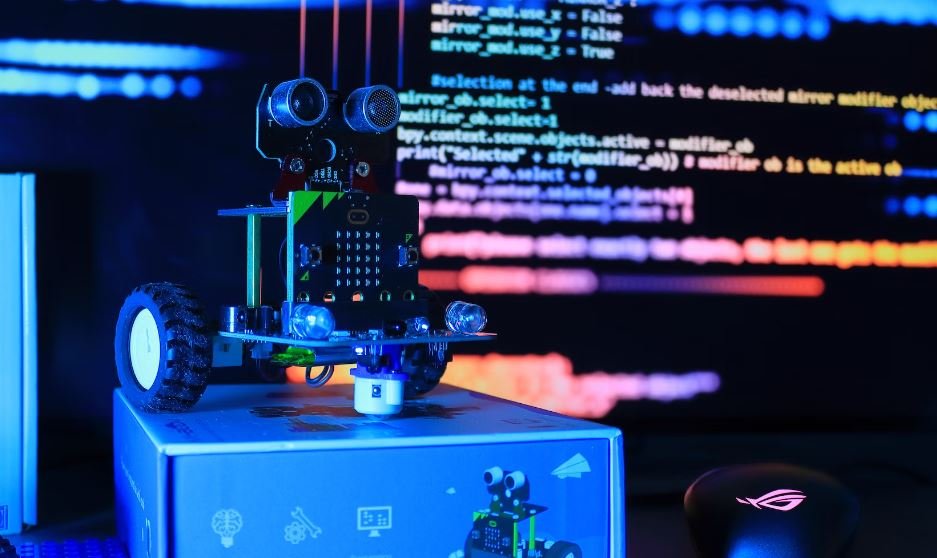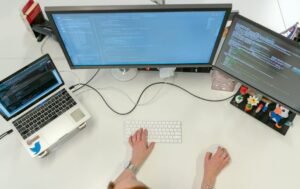AI Music Legal Issues
Artificial Intelligence (AI) has revolutionized various industries, including music. AI-generated music has gained popularity among artists and listeners alike. However, with this new technology comes legal challenges and implications. Understanding AI music legal issues is crucial for artists, industry professionals, and consumers.
Key Takeaways
- AI music raises copyright concerns.
- Licensing and royalty distribution are complex in AI-generated music.
- Ownership and authorship attribution become blurred with AI involvement.
- AI music impacts traditional music industry business models.
- Regulations and laws need to adapt to the AI music landscape.
**AI music**, generated using algorithms and machine learning, poses **copyright concerns**. As AI algorithms analyze vast amounts of existing music to create original compositions, there is a risk of inadvertently reproducing copyrighted material. Artists and developers must ensure they have proper **licensing agreements** for the music used in AI training.
Moreover, **licensing and royalty distribution** become complex in AI-generated music. Traditional music licenses often do not cover the use of AI algorithms to produce music. The involvement of AI may require new licensing models and agreements that accurately reflect the contributions of both human creators and AI algorithms.
Interestingly, ownership and authorship attribution can become blurred with AI involvement. As AI contributes to the creative process, determining who holds intellectual property rights becomes challenging. The question of whether AI can be considered an author or co-author of a musical piece raises legal debates and questions about **intellectual property frameworks**.
Legal Impacts on Traditional Music Industry
The rise of AI music has significant impacts on **traditional music industry business models**. AI algorithms capable of creating original compositions challenge the roles of songwriters, composers, and performers. As AI-generated music becomes more prevalent, the music industry must adapt to the changing landscape.
1. **Increased efficiency and productivity**: AI can create music at a much faster rate than human composers, leading to increased efficiency in music production.
2. **Disruption of established roles**: AI’s ability to compose and produce music blurs the lines between traditional roles in the music industry, potentially disrupting established models of songwriting, production, and distribution.
3. **New revenue streams**: AI-generated music can open up new revenue streams, including licensing to films, commercials, and video games, while also providing opportunities for artists to monetize their AI-generated creations.
In the midst of these changes, regulations and laws must adapt to the AI music landscape. Policy makers and legal experts need to address the challenges posed by AI music and establish frameworks that protect the rights of both human creators and AI systems.
Tables with Interesting Info
| AI Music Platforms | Features |
|---|---|
| Amper Music | AI-powered music creation platform with customizable style and mood options. |
| Jukedeck | Allows users to generate royalty-free music using AI algorithms. |
| Magenta | Google’s open-source AI platform for creative applications, including music composition. |
Here are **three notable AI music platforms**:
- Amper Music: An AI-powered music creation platform that allows users to customize the style and mood of the generated music.
- Jukedeck: Provides users with royalty-free music generated by AI algorithms.
- Magenta: Google’s open-source AI platform that offers creative applications, including music composition.
Conclusion
The emergence of AI music brings new legal challenges to the forefront. Copyright concerns, licensing complexities, ownership attribution, and the impact on traditional music industry models demand attention from artists, industry professionals, and lawmakers. As AI continues to shape the music landscape, it is crucial to establish legal frameworks that strike a balance between innovation and protection of intellectual property rights.

Common Misconceptions
Misconception 1: AI music is not copyrighted
One common misconception people have around AI music is that it is not subject to copyright laws. This can lead to the belief that AI-generated music can be freely used and shared without any legal ramifications. However, AI music is indeed protected by copyright laws, just like any other form of creative expression.
- AI-generated music is protected by intellectual property laws.
- Permission is required to use AI music commercially.
- Plagiarism is still a concern with AI music.
Misconception 2: AI music does not infringe on existing rights
Another misconception is that AI music does not infringe on the rights of existing musicians and composers. People may assume that AI-generated melodies or compositions are completely original and do not borrow elements from copyrighted works. However, AI systems are usually trained on existing musical data, making it possible for AI music to unintentionally resemble existing compositions.
- AI music can unintentionally infringe on existing copyrights.
- Creative Commons licenses may not apply to AI music.
- Sampling existing songs through AI systems can still lead to legal issues.
Misconception 3: AI music is always fair use
Some individuals mistakenly believe that AI music falls under the umbrella of fair use. Fair use allows limited use of copyrighted material without permission, usually for purposes such as commentary, criticism, or education. However, AI music may or may not qualify as fair use depending on the specific circumstances and purpose of the usage.
- Fair use and AI music depends on the specific context and purpose.
- Commercial use of AI music may risk fair use exemptions.
- The transformative nature of AI music is a key factor in determining fair use.
Misconception 4: AI music is always original and creative
Many people assume that all AI-generated music is inherently original and creative. While AI can produce captivating melodies and harmonies, there is a widespread misconception that AI systems can replace human composers entirely. The reality is that AI music is still heavily influenced by human input and the training data it is based on.
- Human composers are involved in the creation of AI music.
- AI music relies on existing musical data to generate compositions.
- AI systems require human parameters and guidance to produce desired outcomes.
Misconception 5: AI music does not require licensing or royalties
Lastly, there is a misconception that AI music does not require licensing or payment of royalties. People may assume that since AI systems generate music autonomously, there is no need to pay royalties to musicians or composers. However, if AI music samples or includes elements from copyrighted works, proper licensing and royalty payments are still necessary.
- Licensing and royalty obligations still apply to AI music usage.
- The use of copyrighted samples in AI music requires proper licensing.
- AI music platforms often handle the licensing and royalty issues on behalf of users.

AI Music Legal Issues
With the rise of artificial intelligence (AI) in the music industry, various legal issues have emerged. From copyright infringement to ownership disputes, these challenges continue to shape the intersection of AI and music. In this article, we explore ten critical aspects shedding light on the legal complexities surrounding AI-generated music.
1. Notable AI-Generated Songs
AI algorithms have produced remarkable compositions in recent years. From the funky vibes of “Daddy’s Car” to the soothing melody of “Beyond the Horizon,” AI has demonstrated its ability to generate compelling music.
2. Copyright Ownership
A key concern involves determining the copyright ownership of AI-generated compositions. Current legal frameworks struggle to define authorship when AI plays a significant role in the creative process, leading to debates over whether copyright should be awarded to the AI, its programmer, or both.
3. Musical Style Imitation
AI algorithms have become proficient at imitating various music styles and genres. However, this raises questions about the legality of AI-generated songs that closely resemble existing copyrighted works.
4. Royalties and Licensing
The question of royalty distribution and licensing becomes complex when AI is involved. Determining the rightful recipients of royalties for AI-generated music is a challenge that necessitates revised licensing models and agreements.
5. Fair Use and Transformative Works
The concept of fair use in copyright law becomes particularly intriguing when AI transforms existing musical works into something new. Assessing whether AI-generated compositions are considered transformative or derivative works is crucial in determining their legality.
6. Liability for Infringements
In cases where AI is responsible for generating copyrighted material, determining liability for copyright infringement becomes complex. Questions arise regarding whether to hold the AI, its developer, or the user accountable for potential infringements.
7. Performance Rights
Performance rights societies play a crucial role in ensuring artists receive compensation for their work. With AI-generated music, the allocation of performance rights and the identification of beneficiaries require careful consideration.
8. Privacy and Data Protection
AI algorithms require vast amounts of data to generate music, raising concerns over privacy and data protection. The legal aspects of accessing, sharing, and storing music-related data generated by AI systems need to be addressed to safeguard user and artist rights.
9. Ethical Concerns
Beyond legal implications, AI-generated music raises ethical questions. Understanding the potential societal impact and ensuring AI systems adhere to ethical principles surrounding creativity, originality, and artistic expression is of paramount importance.
10. International Legal Harmonization
As AI-generated music transcends borders, achieving international legal harmonization is vital. Collaborative efforts are crucial to establish a cohesive global legal framework that addresses the unique challenges and opportunities presented by AI in the music industry.
In summation, the increasing prominence of AI-generated music necessitates careful deliberation of legal issues. Copyright ownership, licensing models, liability, and ethical considerations are among the pressing concerns that require interdisciplinary conversations between legal experts, musicians, and technologists. By proactively addressing these challenges, stakeholders can cultivate a balanced and innovative ecosystem where AI and music coexist harmoniously.
Frequently Asked Questions
What are the legal issues surrounding AI-generated music?
AI-generated music raises several legal issues, including copyright, ownership, licensing, and attribution. As AI systems become more capable of creating music that resembles original compositions, determining the rights and responsibilities of AI-generated music becomes crucial.
Can AI-generated music be protected by copyright?
Yes, AI-generated music can be protected by copyright in some jurisdictions, particularly when the music meets the criteria for originality. However, the question of authorship and who owns the copyright can be complex, as it involves the role of the AI system and its human operators.
Who owns the copyright to AI-generated music?
The ownership of copyright for AI-generated music depends on various factors, such as the extent of human involvement in the creation process and the jurisdiction’s legal framework. In some cases, ownership may be attributed to the AI system developer, while in others, it could be shared between the AI system and its human operators.
What legal challenges arise in licensing AI-generated music?
The licensing of AI-generated music presents challenges in determining the appropriate licensing framework and royalty payments. Traditional music licensing models may not be suitable for AI-generated music, as the involvement of human composers or performers might be different. New licensing mechanisms and agreements may need to be developed to address these challenges.
Are there any ethical considerations when using AI-generated music in commercial projects?
Absolutely. When using AI-generated music in commercial projects, ethical considerations come into play. This includes ensuring proper attribution, respecting the rights of original composers, determining fair compensation for creators, and maintaining transparency in the use of AI technology.
Are AI music composers considered professional musicians?
The classification of AI music composers as professional musicians is still a matter of debate. While AI systems can produce music that is indistinguishable from compositions created by humans, the lack of human intention and creativity may challenge the traditional notion of what it means to be a professional musician.
Do AI-generated music samples infringe on copyright?
AI-generated music samples may potentially infringe on copyright if they include substantial elements from copyrighted works without proper authorization or licensing. Just like with other forms of music sampling, the legality of using AI-generated music samples depends on the specific circumstances and compliance with copyright laws.
How can musicians protect their work from being plagiarized or copied by AI systems?
Musicians can protect their work by registering their compositions with copyright offices, utilizing digital rights management techniques, and actively monitoring for unauthorized use or plagiarism. Implementing proper attribution and linking licenses to the AI system can also help protect musicians’ rights.
Are there any regulations or standards in place to govern the use of AI-generated music?
As of now, there are no specific regulations or standards governing the use of AI-generated music globally. However, some countries and organizations are exploring the need for legal frameworks that address issues related to AI-generated content, including music. The legal landscape is likely to evolve as AI technology continues to advance.
What is the future of AI-generated music in the legal landscape?
The future of AI-generated music in the legal landscape is uncertain and subject to ongoing discussions and debates. It is crucial for policymakers, legal experts, musicians, and AI developers to collaborate and find solutions that strike a balance between protecting intellectual property rights, promoting innovation, and ensuring fair compensation for all stakeholders involved in the creation process.




